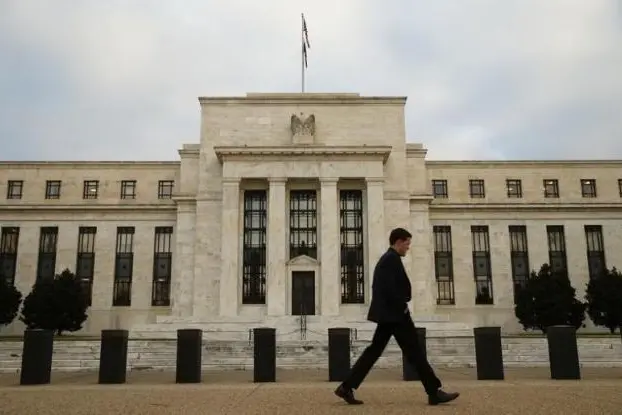PHOTO
WASHINGTON- The U.S. economy is on track by the end of next year to meet the employment and inflation hurdles the Federal Reserve has set for raising interest rates, which would be consistent with a liftoff in borrowing costs in 2023, Fed Vice Chair Richard Clarida said on Wednesday.
"I believe that these ... necessary conditions for raising the target range for the federal funds rate will have been met by year-end 2022," Clarida said in a webcast discussion hosted by the Peterson Institute for International Economics. "Commencing policy normalization in 2023 would, under these conditions, be entirely consistent with our new flexible average inflation targeting framework."
Coming just days after Fed Governor Christopher Waller signaled his view that the U.S. central bank ought to begin paring its bond-buying program by October, Clarida's comments appear to set up the Fed for a quicker path toward reducing support for the economy than had been widely understood.
The benchmark 10-year Treasury yield rose more than 2 basis points off of nearly a six-month low after Clarida's remarks, which came just as a report showed U.S. services industry activity jumped to a record high in July. Interest rate futures swiftly priced in an earlier start for the Fed to raise its benchmark overnight interest rate, which is currently near zero.
Fed Chair Jerome Powell said last week that the jobs recovery was still "a ways off" from where it needed to be to raise interest rates but acknowledged the central bank was monitoring inflation carefully to make sure the current overshoot is not persistent.
Inflation continues to run well above the Fed's 2% flexible goal, but there are still 6.8 million fewer people employed than just before the onset of the coronavirus pandemic.
In his remarks on Wednesday, Clarida said he expects that gap to have been filled, and the Fed's full employment mandate to have been met, by the end of 2022.
While he said he still expects current high inflation readings to come back down, if the Fed's preferred inflation gauge comes in above 3% this year, he also said he would consider that more than a moderate overshoot of the Fed's inflation goal.
"I believe that the risks to my outlook for inflation are to the upside," Clarida said.
He also noted the rapid spread of the Delta variant of the coronavirus is "clearly" a downside risk, but added that the current projections for U.S. gross domestic product growth this year "would be the most rapid return following a recession to ... the trend level of real GDP in 50 years."
(Reporting by Lindsay Dunsmuir and Ann Saphir; Editing by Paul Simao) ((Lindsay.Dunsmuir@thomsonreuters.com; +1 202 898 8411;))





















